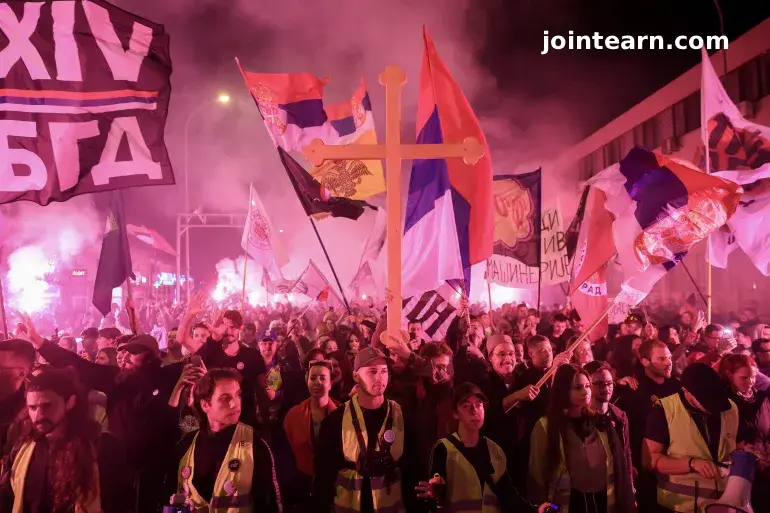
Thousands of Serbian youth are marching across the country ahead of a mass rally in Novi Sad, marking the first anniversary of a catastrophic train station collapse that killed 16 people, including four children. The disaster has since sparked the largest antigovernment protests in Serbia in decades.
Students and activists began the 90km (56-mile) march from Belgrade on Thursday, waving flags and calling for accountability. Others have been marching for weeks from towns as far as Novi Pazar, over 300km from Novi Sad.
“The main reason we decided to do the walk is the 16 victims, and the fact that even after one year, no one has been held responsible for their deaths,” said Emina Spahic, a student from Novi Pazar.
From Tragedy to National Protests
The roof collapse at the station on November 1, 2024, exposed deep-seated issues in Serbian infrastructure oversight and government corruption, fueling public outrage. While 13 individuals, including a former transport minister, have been charged, no trial date has been set, further inflaming protestors’ anger.
The movement has evolved into a broader antigovernment campaign against right-wing populist President Aleksandar Vucic, who has ignored calls for snap elections.
Clashes with Police and Escalating Tensions
Protesters have faced increasingly violent responses from police, including the use of tear gas, stun grenades, and physical beatings. Over the past month, about 1,000 protesters have been arrested.
“They have hit us and they will hit us because they know it is all over [for them],” said Nikolina Sindjelic, a student arrested during the protests in August.
The Council of Europe and other watchdogs have expressed concern over what they call excessive use of force by Serbian authorities.
President Vucic, in response, has blamed foreign actors for instigating unrest and defended the police crackdown.
“We are not going to allow destruction of the state institutions. Serbia is a strong and responsible state,” Vucic said last month.
Public Sentiment and Historical Context
Critics accuse Vucic of becoming increasingly authoritarian since first assuming power as prime minister in 2014 and later as president in 2017. Serbia has a history of toppling strongman leaders; most notably, citizens removed Slobodan Milosevic 25 years ago after widespread protests.
The train station collapse has become a symbol of systemic failure, galvanizing youth and civil society to demand transparency, justice, and political reform.
Enes Dzogovic, a student marcher, described the nationwide support: “People in even the most remote places have aided us with whatever we need along the road. They’re always there to help us.”
Looking Ahead
The rallies in Novi Sad are expected to draw tens of thousands of participants, continuing a nationwide movement demanding accountability and change. As Serbia faces mounting social pressure, the coming weeks could define the future of Vucic’s leadership and the country’s political trajectory.


Leave a Reply